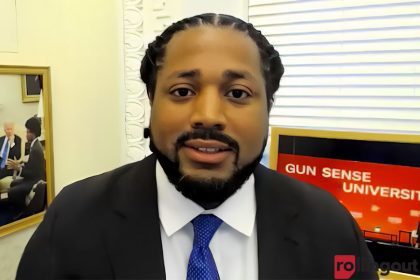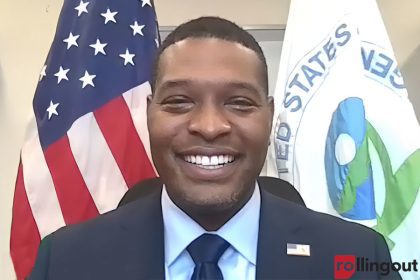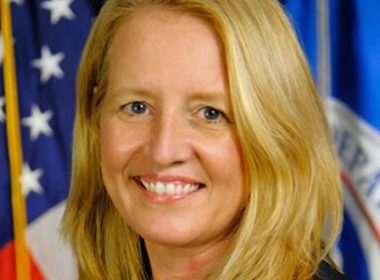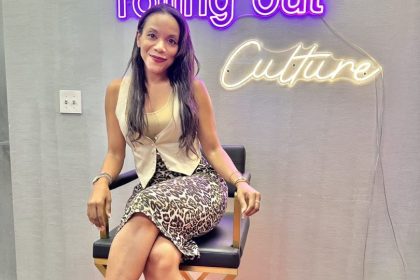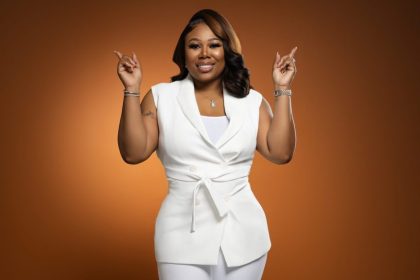Michael S. Regan, the 16th United States Environmental Protection Agency (EPA) Administrator, has blazed a trail in environmental advocacy and equity. Sworn in on March 11, 2021, Regan is the first Black man and second person of color to lead the EPA. Growing up in Goldsboro, NC, his love for the environment was nurtured through experiences in the great outdoors with his family. His upbringing as the son of a dedicated nurse and a Vietnam veteran fueled his passion for public service. Before his historic role at the EPA, Regan led groundbreaking initiatives as Secretary of the North Carolina Department of Environmental Quality, including the nation’s largest coal ash cleanup and establishing an Environmental Justice and Equity Advisory Board. An HBCU graduate from North Carolina Agricultural & Technical State University, Regan embodies a commitment to ensuring that environmental protection and economic prosperity go hand in hand.
Recently, he sat down with Munson Steed to discuss the path to environmental equity, the impact of HBCUs, and empowering communities to embrace a sustainable future.
[Editor’s note: This is a truncated transcribe of a longer video interview. Please see the video for the extended version. Some errors may occur.]
In your position, you have a unique ability to see the future as it relates to the environment. How would you share that future and the EPA’s vision and insight as it relates to leading the EPA? And what should we know about our future?
I think everyone should know that our future is bright, and I have to say that leadership matters. Thanks to the President and the Vice President, this administration has been able to make sure that everyone has a seat at the table. And when I look at the level of investment that this administration is making into our communities, in particular, I have to say that I have never seen the level of federal resources being invested in Black and Brown communities like they are today. Just to give you a perspective on that, there are two pieces of legislation that gave the EPA $100B to invest in clean air, clean water, and healthy lands. And at a minimum, 40% of that must go into and benefit our communities. That’s $40 billion. Those investments are to help clean the water and the air but also to invest in economic development and jobs. That’s just one example of why I’m really optimistic and really excited about what the future brings to our communities.
How did your HBCU experience prepare you for this career and give you a strong commitment to serving the country and our community?
When you step on one of our [HBCU] campuses, it’s all about excellence. You have people there that look like you, that share your experiences, that will ensure that you are about that life of excellence. So I would say that North Carolina Agricultural and Technical State University invested and instilled a lot into me that helped me pursue some of these more ambitious goals that, quite frankly, I probably didn’t have before I stepped on the yard. And as I pursued my degree, the HBCU campus just opened up so many opportunities in terms of internships, co-ops, trips, and conversations with those professors who had been places and seen things. It really lit that fire in me. Every job I’ve had—especially this one being the first Black man and first HBCU graduate to lead the EPA—I feel that accountability and pressure to make sure that I’m not the last, that I don’t mess it up, and I leave that door open so that others can come through. That’s what A&T instilled in me: excellence and making sure that you pave the way for others. It’s meant everything to me.
How does innovation play a role in how we should think about our environment?
We found ourselves in some peculiar situations here because of redlining, systemic racism, and environmental injustices. Unfortunately, Black and Brown people suffer from some of the worst impacts of pollution—water, air, and contaminated lands. The way we get out of this mess is by innovating our way out. The way we get out of this mess is advanced technologies, new business models, thinking through how we—not through the federal government solely doing it for us—but how we create jobs, how we participate in the job market, and how we think our way out of this situation. I’ll tell you and the listeners that when you think about a clean energy economy, it is the economy of the future. It’s a multi-trillion-dollar economy. And it’s technology, it’s new business models, it’s traditional jobs, it’s new jobs. It is the future. So the best way to be prepared, whether it’s a four-year institution or a community college, is to get those skill sets that will allow you to participate in that new economy, which, by the way, sustainability and clean energy are tied to just about every single thing we’re doing moving forward.
If you could give a speech to all Americans about how you’d like to see us change some of our behaviors regarding our environment and our homes, what would you say?
First and foremost, as the regulator for a lot of businesses that have polluted, polluters must pay for the damage they’ve caused, and we need the corporate environment to take full responsibility for helping us get out of this mess. And then there are some individual things that we can do. I have to say it nearly broke my heart when I took this job and saw just the situation in Jackson, Mississippi—over 190K people without clean water to drink. And as I was working on that issue, my son, who’s 10 years old, was paying attention. I was talking about the importance of clean water, and he said, “Well, Dad, if it’s so important, don’t let the water run when you’re brushing your teeth and waste water.” It’s small stuff like that [where you’re] making sure that you just don’t waste resources that others in 2024 still don’t have access to. Making sure that our homes are energy-efficient. The Vice President and I just launched a $27B Greenhouse Gas Reduction Fund. This is an investment fund that’s going to ensure that our homes are more energy-efficient in our communities. The reason is that if you have more efficient appliances in your home, you save money. There’s one family that we met with that’s saving $600 a month just in more efficient stoves, lighting, and appliances.
If you were giving a graduation speech at an HNCU, what would you say to challenge those graduates whose lives are right ahead of them?
I was fortunate enough to be invited to actually give the fall commencement speech at [North Carolina Agricultural and Technical State University], which was an honor of a lifetime. I told those students the same thing that my father told me quite frequently when I was growing up, which is, stand up and be counted. … That means don’t just stand up and talk a lot, but make sure your actions are representative of that excellence that many of our professors and administration officials are instilling in us at that early age. I believe that we have to be authentic. We have to walk in that authenticity. There’s nothing wrong with who we are and who God has made us, and I think we need to own that … We have to strive for excellence in everything we do. Life’s not fair. We have to be three times as good. That’s always been the same growing up in my home. And when you’re competing out here, it is true—you have to be better. And I think that we have to take advantage of opportunities. I heard a long time ago, I believe it was Oprah Winfrey who said, “Success is being prepared for opportunity.” And I think that’s what I’ve seen in my life. I didn’t necessarily plan out all of these steps, but because of A&T, because of the pursuit of excellence, when an opportunity was presented, I was prepared, and I feel very blessed and fortunate to be here today.
Share how you stay sharp, remain a constant learner, and why it is important to future-proof yourself.
The key for me is just sitting down and talking to people who are experts in their field. A lot of us feel that we know it all, and everything on the internet is a quick answer, and that’s the solution. I’m always seeking knowledge from our elders or from people who have been practicing a craft and have been doing it for a while. When I think about Dr. Robert Bullard, who is at Texas Southern University, he’s credited as being the father of environmental justice, and he’s been somebody that I’ve followed for a number of years. I’ve always tried to understand what the fight has been like for 40 years. In understanding what that fight was like, once we received some resources from Congress, I just recently awarded TSU and Dr. Bullard $15M to disseminate through grant-making. I say that story because it’s a cycle … You extract some information from individuals, but you have an opportunity to give it back. We are doing that in a very profound way at EPA. We gave Dillard University $20M to do something similar. We’ve got HBCUs all over the country that are doling out millions of dollars. So the way to stay sharp and the way to take advantage of opportunity is [seeking knowledge]. If I had not been conversing with these leaders, if I didn’t understand the institutions and their ability to disseminate, I would not have been able to award these precious resources that our HBCUs need. So my thing is, be a student of life.
Why should our community and all Americans make environmental justice a part of their vision for the future of this country?
I started the Journey to Justice tour when I became administrator because, in 2021, I needed people to see in this country that everyone doesn’t have access to clean air and clean water. The bottom line is that when our communities are polluted, and our children are having asthma attacks, and our children can’t think and pay attention in class because of those respiratory distresses, it’s setting back generations. When you are boiling your water to drink in 2022, as a child, that scars us. So, it is imperative that we understand that the environment is directly tied to our health and our economic upside. When you look at systemic racism, the system has always known that if we pollute our communities, then we are one or two steps behind. We can never get or seek that economic promise and opportunity that this country avails to us [with these issues]. I think people should just understand, number one, that we owe it to our communities to create rising tides so our communities can be uplifted. And number two, if our communities are uplifted, so is economic development, so are job opportunities, so are generational wealth opportunities. This is all tied to our environment. If you can’t breathe and you don’t have access to clean water, or if your home is built beside a dilapidated gas station that no longer services the community, you’re at a disadvantage. We have to eliminate that.

